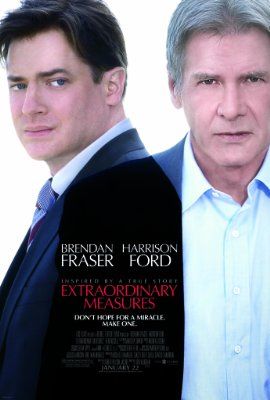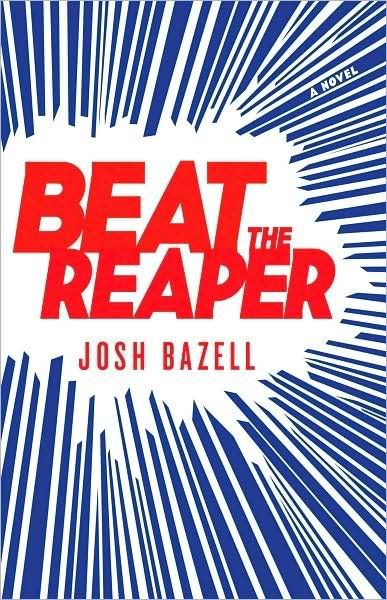REVIEW: “Splice” (includes VIDEO interview with cast + crew)
Jun1

Splice ©2010 Warner Brothers Entertainment, all rights reserved.
About a week and a half ago, scientists achieved a remarkable evolutionary stepping stone in the technological holy grail of eventually engineering synthetic life. Nicknamed ‘Synthia’ by her experimental progenitors, the latest discovery is a viable, self-propagating yeast cell hosting a bacterial Mycoplasma mycoides genome (consisting of non-biological DNA) purely composed in the laboratory. In eerily apt timing, Splice, a new science fiction thriller premiering this week, explores the scientific ramifications and bioethical morass encompassing the creation of a human-animal hybrid by a rogue superstar genetics couple. Under the “continue reading” cut, ScriptPhD.com’s review of Splice, discussion of the expanding frontiers of genetic engineering, and a special video interview with the director/writer, producer and stars of the film.
Forever Young: Living in an Age of Agelessness
Jan1

The chemical compound resveratrol, a component of red wine that has been linked to anti-aging properties in laboratory experiments.
During a recent trip to New York City, I had the pleasure of befriending exciting new author Ernesto Robles, whose debut novel The Malthusian Catastrophe is a ScriptPhD.com recommended pick. Smart, topical, fast-paced and decidedly engrossing, this biomedical thriller drives at the roots of our cultural obsession with the “fountain of youth” and the perilous socioeconomic repercussions of actually finding and disseminating it. In a year when the Nobel Prize for Medicine and Physiology went to a team of researchers for their discovery of how chromosomes are protected by telomeres and the enzyme telomerase, essential biological components of the human aging machinery, and a cultural era that has anointed juvenescence as sacrosanct, Malthusian’s overarching themes are especially germane. ScriptPhD.com’s discussion includes a review of the book, the biology and ethics of current aging research, and a one-on-one interview with Mr. Robles. For full content, please click “continue reading.”
REVIEW: Extraordinary Measures
Jan2
A Father’s Love and a Scientist’s Dedication in a Race against Time

Extraordinary Measures film poster ©2010 CBS Films, all rights reserved
Imagine this scenario: you are a young married professional, a rising star in a well-respected pharmaceutical company. You have three children, two of which suffer from a rare, inherited genetic disease for which there is no cure. They will die in about a year or two. What do you do? Inspired by the book The Cure: How a Father Raised $100 Million – and Bucked the Medical Establishment – In a Quest to Save His Children by Pulitzer Prize-winning journalist Geeta Anand, Extraordinary Measures is a drama about the real-life story of John Crowley (Brendan Fraser) and Dr. Robert Stonehill (Harrison Ford) as they work feverishly to find a cure for the disease afflicting Crowley’s children. The dramatic caveat is that said cure is based solely on a scientific theory. CBS Films’ motion picture debut touches on a myriad of salient modern-day issues, including personal morality, risk taking, scientific funding, pharmaceutical business practices, the dedication to science, professional relationships, and a man’s love for his family. For the full ScriptPhD.com review, please click “continue reading”.
This is Your Brain on Music
Nov0

The Human Instinct image ©2009 PBS, all rights reserved.
Music. We all know what it sounds like when we hear it. It has the ability to create powerful emotions, or bring back memories from the distant past in our lives. We may use it when we exercise, study for exams, read, or for traveling form point A to point B. But what is music? Is it unique to human beings? How do we interpret music when we hear it? Are the emotions created by music universal, irrespective of the listener’s culture and country of origin? Can music teach us anything about how the human brain functions? These interesting questions and more are explored in the fascinating documentary The Music Instinct: Science and Song, a PBS production that was recently honored with the top prize at the prestigious annual Pariscience International Science Film Festival. ScriptPhD.com’s newest regular contributor NeuroScribe provides his review and discussion under the “continue reading” jump.
The Flu, The Facts, The Media and You
Nov9

A microscope image of the H1N1 "Swine Flu" influenza virus. ©2009 CDC, all rights reserved
We are in the midst of a pandemic, folks. A pandemic of fear. A truly formidable novel strain of influenza (H1N1) is spreading worldwide, creating an above-average spike in seasonal illness, the genuine possibility of a global influenza pandemic, and an alarmed public bombarded with opposing facts and mixed messages. It’s understandable that all of this has left people confused, scared and unsure of how to proceed. ScriptPhD.com cuts through the fray to provide a compact, easy-to-understand discussion of the science behind influenza as well as invaluable public health resources for addressing additional questions and concerns. Our discussion includes the role of media and advertising in not only informing the public responsibly, but effecting behavioral change that can save lives. Our full article, under the “continue reading” jump.
The Gift of Life: “Three Rivers” Review
Oct10

Donate Life, the official organ transplantation awareness and educational outreach organization. www.DonateLife.net
Medical shows are a generational television staple—often dramatic, rarely realistic, and only sometimes socially relevant. But tonight, on CBS, a different kind of medical show premiered. Three Rivers, based at a fictional world-famous transplant hospital in Pittsburgh, puts front and center an often misunderstood and ignored sector of modern medicine—organ transplantation. With wit, sensitivity, and a refreshing degree of accuracy, this important new show will shed light on the three branches of the organ donation and transplantation system: the donors, the recipients, and the transplant surgeons and staff who connect the two. Under the jump, ScriptPhD.com reviews the pilot and provides important information and resources for those who are considering signing up to be a donor.
Fall Science TV Preview, Part III
Sep1

Our Fall Science Television preview concludes with our last installment. ScriptPhD.com give you a sneak peek of the conclusion of Warehouse 13, the hit reality show Destination Truth, and new series V and the delectable, highly-recommended ScriptPhD.com pick for best new fall show, Stargate Universe. I sincerely hope that our three-part guide to some (though not all) of the vast and rising science and technology content on television was a helpful guide and provided you a variety of options from shows returning and launching as you embark on your Fall TV seasons. Wishing you all full TiVos and busy remotes!
Fall Science TV Preview Part II
Sep4

Following up on Part I of our Fall Science Television preview, we continue with some of our picks for best bets in comedy, drama, and even reality covering the scope of medicine, physics, forensics, fantasy and pure old-fashioned science fiction. Tonight, in Part II, ScriptPhD.com give you a sneak peek of the return of Dexter, House, MD, Grey’s Anatomy, MythBusters, The Big Bang Theory and the highly anticipated television adaptation FlashForward. Tomorrow night, our coverage concludes with a review of the V pilot and previews of programming from the holy grail of science fiction television, the SyFy Channel. Our reviews, under the jump.
INTERVIEW: Best-Selling Author and Medical Doctor Josh Bazell
Aug0

Dr. Josh Bazell, author of medical mystery "Beat the Reaper"
ScriptPhD.com recently reviewed and recommended a new medical mystery thriller, “Beat the Reaper”, written by real-life medical doctor Josh Bazell. A longtime aspiring writer, Josh majored in English Literature with Honors at Brown University, after which he entered the English Lit PhD program at Duke. He ultimately chose to pursue a post-graduate degree in medicine at Columbia University, and completed his residency in the Department of Psychiatry at the University of California at San Francisco. He is currently working on his second book and is a practicing psychiatrist.
In between getting ready to release “Beat the Reaper” as a paperback, with a Leonardo di Caprio-starring film adaptation in the works, and writing his follow-up novel, a busy Dr. Bazell generously lent us some time to chat. To read our interview, please click “continue reading”.
BOOK REVIEW: Medicine, Mafia Style!
Jul2
Beat the Reaper: A Novel
Written by: Josh Bazell

Beat the Reaper
House meets The Sopranos—there’s your Hollywood pitch line for the debut novel of talented newcomer Josh Bazell. But it’s so much more than that: part medical mystery, part action-adventure thriller, part character study, Beat the Reaper deftly explores the scope of revenge, loyalty and one’s capacity for redemption. We are introduced to the novel’s protagonist, a New York City doctor, as he’s getting mugged on his way to work. But rather than acquiescing, he expertly dislocates the mugger’s arm, smashes his nose in and takes his gun. Peter Brown is clearly no ordinary doctor. Left to fend for himself at the age of 14 after the vicious murder of his grandparents, Pietro Brnwa takes up karate and a fateful friendship with David Locano, aka Skinflick, whose father was a lawyer by day, a mobster by night. Initially attracted to the mafia for personal retribution, Brnwa descends deeper into the Locano family and their ties, and finds that he is disturbingly good at his job. A perfectly orchestrated series of events leads Pietro into murder, a test of his friendship with Skinflick and the threat of jail. Instead, he ends up at dingy, dilapidated Manhattan Catholic Hospital as Dr. Peter Brown, a member of WITSEC, the U.S. Marshal’s Service Witness Security Program. Peter’s anonymity comes to a crashing halt when he treats a blast from the past, in the form of terminally ill patient Eddy Squillante, who recognizes him as the erstwhile “Bearclaw” Brnwa. As long as he can keep Squillante alive, he staves off some angry mobsters looking to get reacquainted. To do so, he must navigate through a sea of other patients, a shady surgeon assigned to Squillante’s case, and external forces looking to ensure that he fails. Oh and by the way, he has eight hours. (Why is Peter known to the mobsters as Bearclaw? You’ll have to read the book and find out… it’s downright incriminating!)
Pietro Brnwa is a unique, memorable character in the best tradition of detective fiction heroes. Not one you’d call warm and fuzzy, he ascribes himself as “God’s original asshole” and his sycophantic medical students as “two cups of human misery in short white coats”. He has a short temper, a snarky aside for most everything and everyone that crosses his path, and generally looks at the glass as half empty. But Pietro also has a defined moral code of ethics. His very reason for joining the Mafia—to avenge his grandparents’ senseless death—is practical, not glamorous. He won’t kill women or children, as evidenced by his refusal to kill the sister of the man that sold his grandparents to Auschwitz. And he manages to show a tender side with the only woman he’s ever loved, and who plays a tragic role in the final showdown between his past and present. More importantly, Brnwa, as Peter Brown, is an excellent doctor. Sure he has plenty of insults for fellow physicians, no patience for patients, and crunches on Moxfane tables to stay awake enough for rounds. But he also cares enough to make time for a frightened cancer patient awaiting surgery, to retrieve a lost well-meaning elderly patient with dementia and to perform an impossible surgery on the dying Mob messenger that’s been sent to warn him. Okay, that last one was a necessity.
On top of the intricate action, mind-bending medicine and humor, the book’s style is immensely enjoyable—sexy, sleek, fast-paced, and a little too cool for old school. Bazell unfolds the plot cleverly with side-by-side storylines. Peter Brown’s impending peril is told compactly over the course of the eight hours that interweaves his reunion with old friends with an interesting medical mystery and a rather unfortunate incident with an Assman and a needle. All in a day’s work. Concomitantly, Pietro Brnwa’s story transpires over a more protracted period of time, and the reader absorbs the tragedies that befell Pietro from his early days in the mob through to the deal that lands him in witness protection, learning what makes him tick along the way. The past merges seamlessly with the present to culminate in an ending so shocking and imaginative, you will want to have an anatomy textbook, not to mention a strong stomach, to piece it all together. Interspersed throughout are little factoids and medical footnotes that add a rich third dimension to the novel’s flow and to our protagonist’s hilariously sarcastic wit. Did you know that scrub suits are reversible, that some of the most prosperous pharmaceutical companies had a shameful history of slave labor at Auschwitz, that you can’t run DNA tests from urine, that surgeons will use some pretty superfluous silly vocabulary to avoid saying “head up” or “head down” in surgery, or the real reason that Tony Soprano’s cover as a garbage consultant is ironic? Neither did I. Rarely does a thriller afford you the opportunity to pick up some knowledge while you’re being entertained, and for that, Beat the Reaper gets the ScriptPhD.com seal of approval!
As if all of this isn’t enough to get you excited, the book is currently being adapted for film by the same team of screenwriters that brought you Ocean’s Thirteen. There are even rumblings of Leonardo DiCaprio playing Peter Brown/Pietro Brnwa/Bearclaw. So go out and please support a local bookstore in picking up a copy today!
~*ScriptPhD*~

















